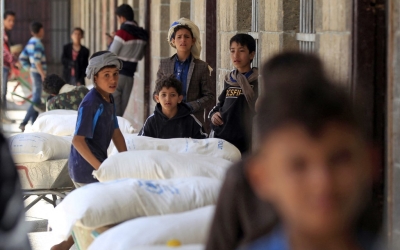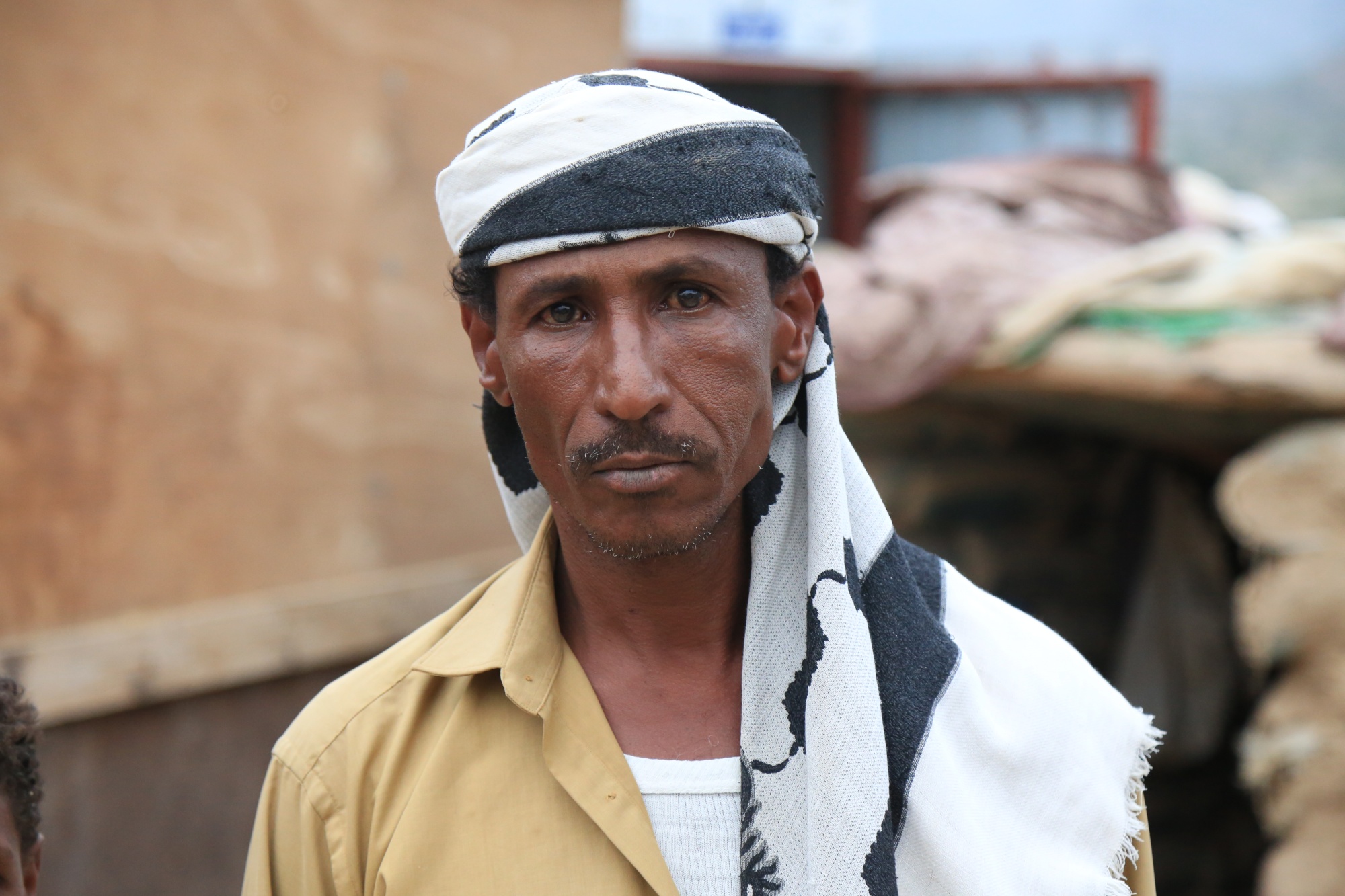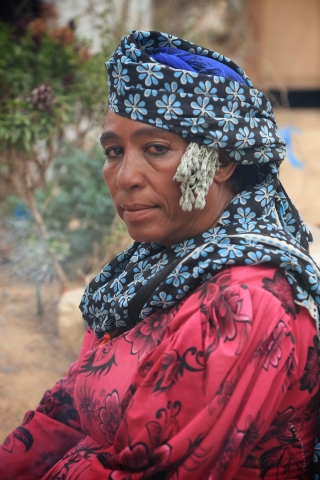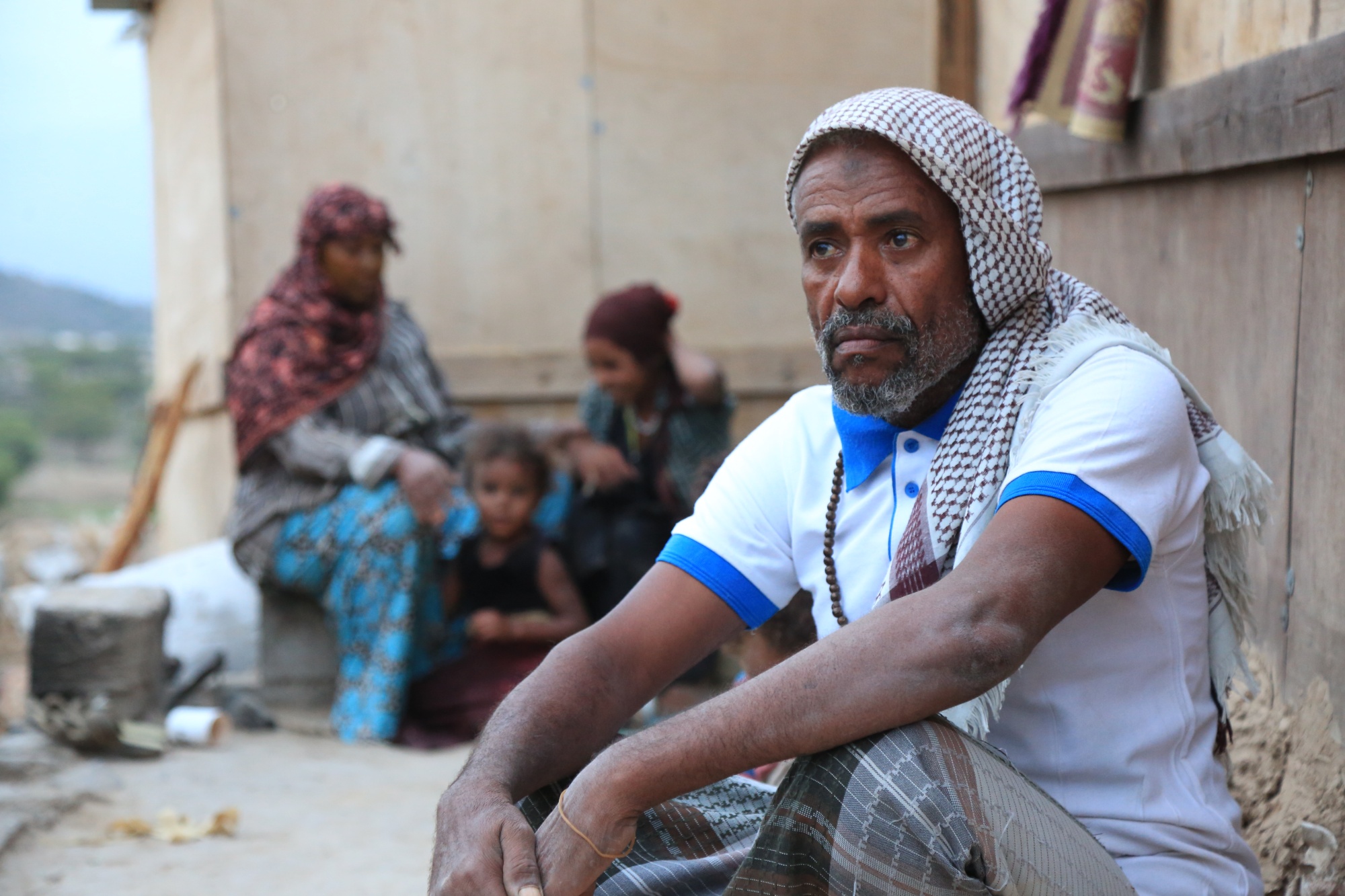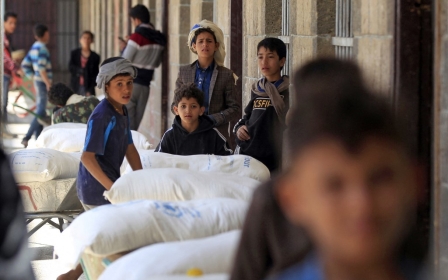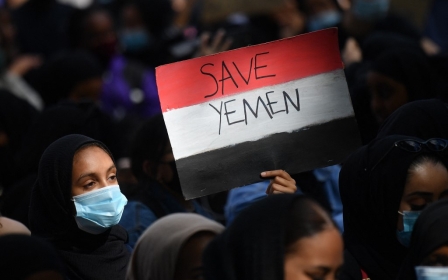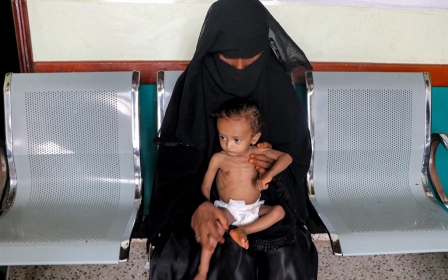Yemen: UK cuts in humanitarian aid funding leaves families fearful for future
For Abdulwaez Sufian, who lives in a displaced persons' camp in Yemen's Taiz, the news that the UK is cutting its humanitarian aid budget has left him fearful that reductions in basic services provided by aid organisations could leave him unable to feed his family.
After six years of war and a rampant economic crisis, 80 percent of the Yemeni population - some 24 million people - are in need of some form of humanitarian assistance or protection to survive, including 14.3 million who are in acute need, according to the United Nations.
New MEE newsletter: Jerusalem Dispatch
Sign up to get the latest insights and analysis on Israel-Palestine, alongside Turkey Unpacked and other MEE newsletters
With the man-made crisis in the country described as the worst in the world, the UK parliament's vote on 13 July to slash the country’s foreign aid budget by a third - or £5 billion ($6.92bn) - may worsen the situation in Yemen.
Yemen was the fourth biggest recipient of UK aid in 2019 with £260m ($360m), only for pledged aid to drop to £87m ($120.5m) in 2021.
While details of how the cuts in foreign aid will affect the country are not yet known, several Yemenis told Middle East Eye of their concerns regarding how London’s decision may affect them and their families, for whom international assistance has meant the difference between survival and famine.
‘We need support to stay alive’
Sufian, 50, who lives with his wife and 11 children in the camp, fled his home in 2015 when fighting reached his village, al-Kalaeba, near Taiz.
The farmer lost everything due to the conflict, and he and his family have since been displaced to a camp for internally displaced people in Taiz’s al-Maafer district.
“I was a farmer planting and selling onions and leeks, and that was enough to provide for my family members,” Sufian told MEE. “I didn’t need help from anyone - in fact, I used to help others.
“The war forced us to flee our home and leave everything behind. Now, we are displaced persons in this camp, we can’t find work and can’t leave to other areas - so the only source of basic services is (aid) organisations,” he explained.
Sufian’s family struggled at first to adapt to life in the camp.
“In the first months of displacement, we experienced a deep suffering, as there were no organisations to help,” he said. “Some children suffered from malnutrition, but then organisations intervened and rescued our families from famine.”
For Sufian, charities have been life-saving in difficult circumstances.
'We have already started to suffer - and if there is a complete aid cut, this camp will head towards famine'
- Abdulwase Sufian, displaced Yemeni, Taiz
“Humanitarian assistance reduced our suffering. We receive assistance in the form of different basic services in the camp, like shelter, latrines, water, as well as money that’s helped us to buy food and other basic items,” he said.
“I can say that humanitarian aid has played a major role in creating stability for displaced people in this camp and other areas where a majority of people depend on them.”
The Yemeni said he was fearful that the British aid cuts would directly affect his community.
“I’m the representative of displaced families in this camp, and I know that the UK helped us through Oxfam,” he said. “If we don’t get enough humanitarian assistance...my family will be the first (to suffer). How can I provide for 11 children when I’m a jobless man?”
Sufian said he had already witnessed the strain caused by reduced aid over the years.
“We have already started to suffer - and if there is a complete aid cut, this camp will head towards famine,” he said. “I myself had to sell our mattresses to take my daughter to the hospital. The situation is bad now and if there is an aid cut, it will be worse.
“We hope that war ends and we return to our regular life, but that seems far away, so for now we need support to stay alive,” he added.
“Fifty kilograms of wheat flour costs YR30,000 ($30) and it is difficult for me to buy as I don’t have even YR1,000 in my pocket.'
Begging for survival
Najat Saif, a displaced woman in her 40s who lives with her children in Taiz’s al-Beerain, has been the head of her household ever since her husband died before the war. She has been receiving aid from international organisations, but recently started to beg in the local market to make ends meet.
“Organisations reduced our suffering, as they helped us with water and wooden shacks, when we used to sleep outdoors before,” she told MEE. “We’ve also received money from organisations like Oxfam, which helped us a lot over the last few years.
“But recently assistance was reduced, and now we receive neither money nor food,” she added. “Humanitarian assistance used to reach all needy people here, but now only some are still receiving it.
“Unfortunately, I’m a beggar nowadays.”
Saif says one organisation is still providing some needy Yemenis in the area with flour, some of whom end up sharing part of their meagre donations with her. While it isn’t enough to feed her two daughters, it’s become an essential source of support for her family.
“If not for the wheat flour from that organisation, we would fall into famine,” she said.
“We still remember those bad days when most families used to beg” before aid organisations came in to help, Saif said.
“We don’t want to return to that suffering with assistance being cut. I hope that organisations continue to help us with food so I don’t need to beg."
Preventing famine
Abdu Hassan, 55, is a father of seven. The war forced his family to flee their home in the Kadaha district in 2015 for the al-Maafer IDP camp, and they have been dependent on humanitarian assistance for health care ever since.
“I look to basic services to remain alive in the camp,” he told MEE. “My wife suffers from high blood pressure and I have a disabled boy - both need health care. I can’t afford their health care, but an organisation provides me with coupons that we use to go to hospital for free.”
For Hassan, making a living has been a haphazard process.
“Sometimes I can find work and most of the time not, so I can’t provide my family with enough food and health care,” he said.
“We are lucky to receive assistance from those organisations. This is the situation of the majority of people here, not just mine. We thank all organisations and their donors for such support.”
The possible drying up of British funding has Hassan worried for his family.
“We heard about the reduction in aid, but we don’t know the reason why. We hope that organisations can find a solution if donors like the UK cut their aid to us,” he said. “I don’t know how they can find funds, but my message is that we can’t live without aid.
“Humanitarian assistance is preventing a famine among Yemenis.”
Middle East Eye delivers independent and unrivalled coverage and analysis of the Middle East, North Africa and beyond. To learn more about republishing this content and the associated fees, please fill out this form. More about MEE can be found here.


